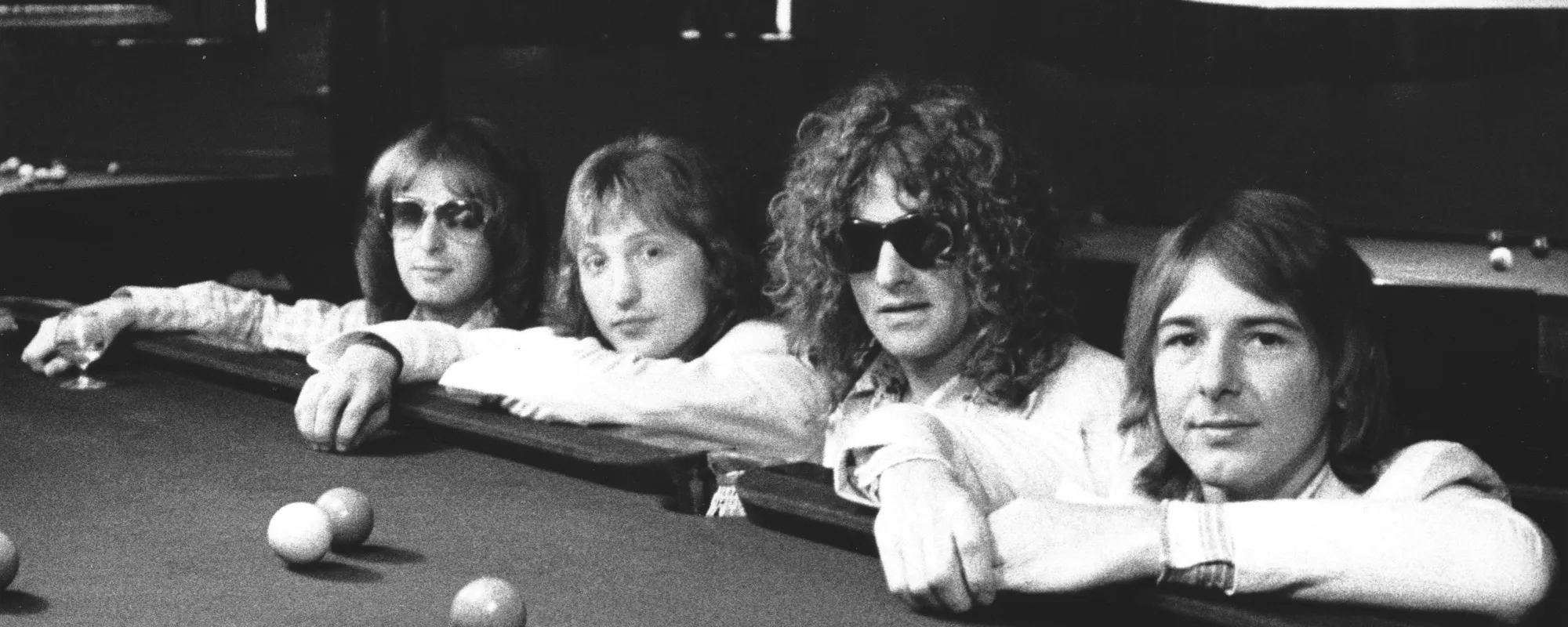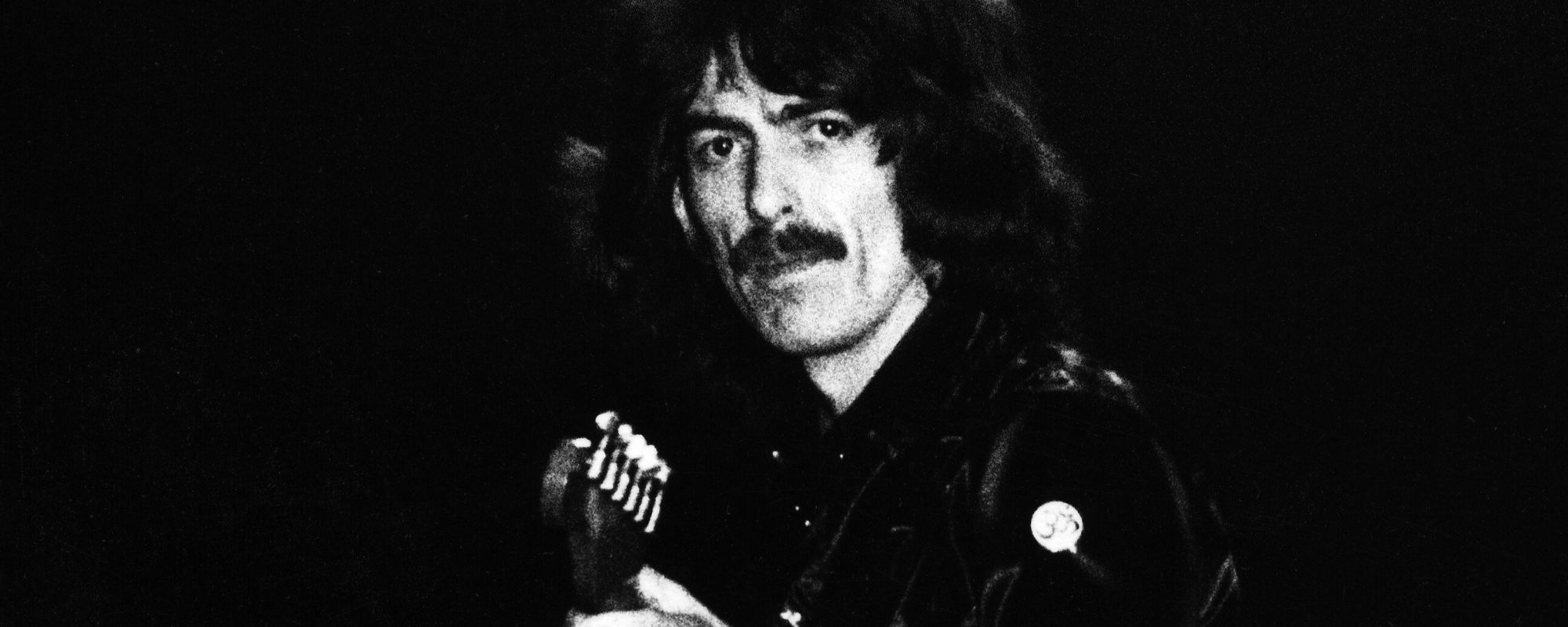On this day (September 19) in 1968, country music star Red Foley died of respiratory failure in Fort Wayne, Indiana, at the age of 58. The day he died, Foley shared the stage with Billy Walker and Hank Williams Jr. during a Grand Ole Opry event. He finished his second and final set of the evening with his signature tune and passed in his sleep hours later.
Videos by American Songwriter
Foley found a passion for music and performing at a young age. Before reaching his teens, he would perform in his father’s store, singing and playing multiple instruments. He kicked off his recording career in the early 1930s, releasing his first single, “The Lone Cowboy,” in 1933. He found his first hit when “Old Shep” reached No. 6 on the country chart in 1941. Years later, as World War II raged, he had hits with songs about the war and those fighting it, including “Smoke on the Water,” “There’s a Blue Star Shining Bright (In a Window Tonight),” and “At Mail Call Today.”
[RELATED: 4 Classic Country Songs That Aged Like Fine Wine]
Between 1941 and 1959, Foley rarely missed the top 10 and continued releasing charting singles until he died. However, a handful of songs stand out in his incredibly deep discography. In 1946, he released “Have I Told You Lately That I Love You,” which has been covered by a long list of legendary artists. In 1950, he released “Chattanoogie Shoe Shine Boy,” which spent 12 weeks at No. 1 and became his signature song. Then, in 1951, he released “(There’ll Be) Peace in the Valley (For Me),” one of the first gospel singles to sell a million copies.
Red Foley Discovered Brenda Lee
According to the Country Music Hall of Fame, Brenda Lee showed an early talent for memorizing and singing nearly any song she heard. She won her first talent contest at six years old. That led to regular radio and television appearances in the Atlanta, Georgia, area. This is how she met Red Foley at the age of 11. At the time, Foley hosted Ozark Jubilee, a popular country music variety show on the ABC network.
Lee’s family relocated to Springfield, Missouri, in 1956, and she became a regular performer on the show. After becoming a hit with the Jubilee audience, Lee inked a deal with Decca Records later that year.
Foley’s Influence on Early Rock and Roll
Red Foley was one of the country stars of his era. He helped popularize the genre nationwide. At the same time, his music was hugely influential on early rock and roll performers like Elvis Presley and Jerry Lee Lewis. Country boogie songs like “Tennessee Saturday Night” and “Sugarfoot Rag” were a precursor to that early rock sound. At the same time, his smooth vocals were an early inspiration for Presley and many others.
Presley famously covered a pair of Foley’s hits. He won his first talent competition with “Old Shep” years before he recorded it. He also recorded a rendition of “Peace in the Valley.”
The influence of Foley’s upbeat boogie style was prevalent in Lewis’ music. His rendition of “Tennessee Saturday Night” is proof that he took some cues from the country star.
Hank Williams Jr. Wrote a Song About the Night Red Foley Died
Hank Williams Jr. was just 19 years old when he joined Red Foley and Billy Walker for the Grand Ole Opry Show in Fort Wayne, Indiana. He was also likely the last person to speak with the country legend before he died.
That night inspired him to write “I Was with Red Foley (The Night He Passed Away).” He released it under the pseudonym Luke the Drifter Jr. in November 1968. It was a nod to Luke the Drifter, the name his father used for his early gospel recordings. Hank Sr. was also a longtime friend of Foley’s.
In the song, Williams wrote that Foley was moving and speaking slowly that day and didn’t have an appetite. However, he noted that the star put on two incredible shows for the crowd in Fort Wayne. That night, when they returned to the hotel, Williams invited Foley to his room to chat.
The lyrics state that Foley came over, sat down, lit a cigarette, and gave the young musician some career advice. He implied it was the same advice his father would give him if he were still around. Then, shortly thereafter, he retired to his room.
Then he got up, and these were the last words he said / I’m awful tired now, Hank, and I’ve got to go to bed.
Featured Image by Michael Ochs Archives/Getty Images










Leave a Reply
Only members can comment. Become a member. Already a member? Log in.